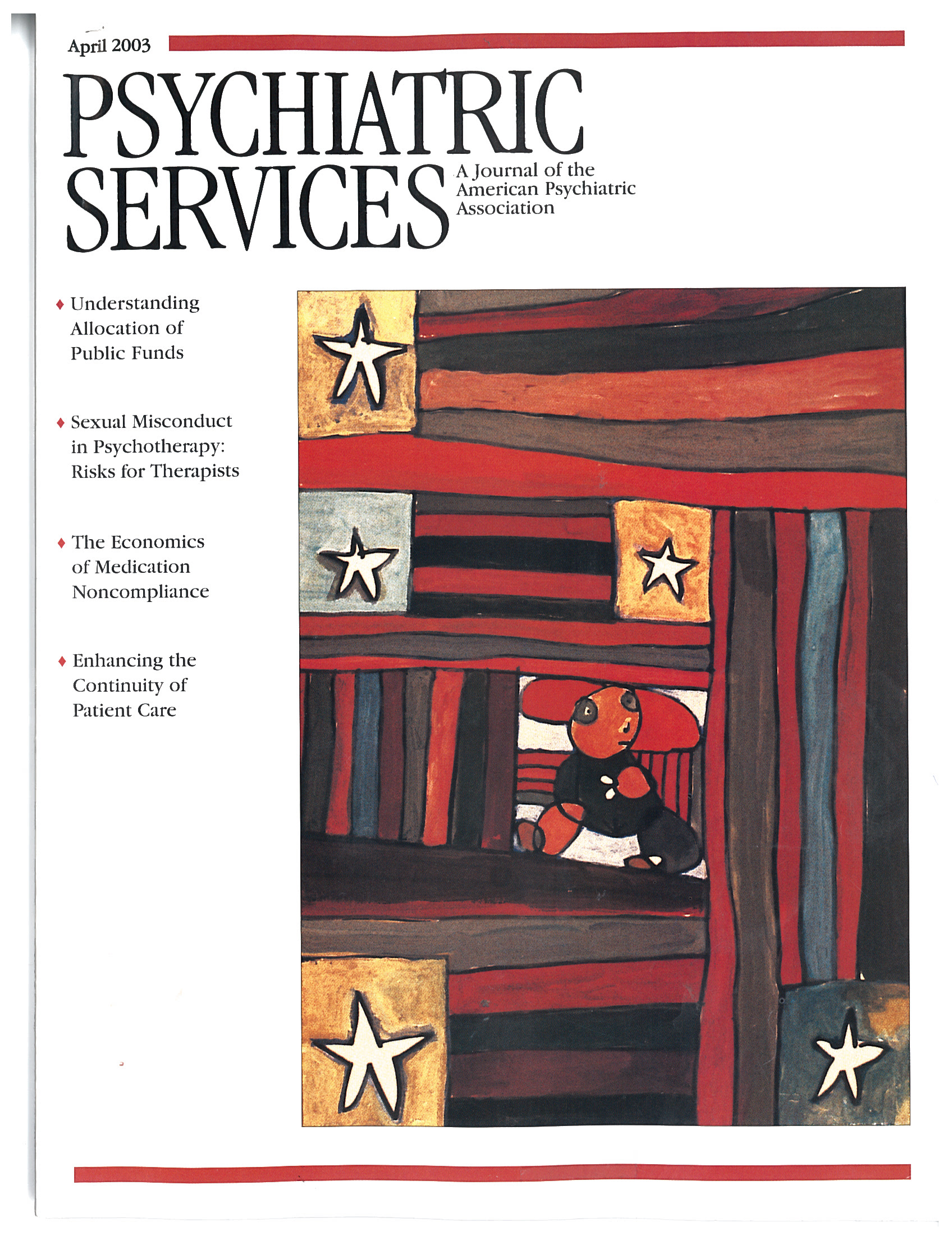Understanding Resource Allocation Decisions
How can mental health consumer advocates maximize the impact of their advocacy efforts? Given that the need for funds to support mental health services is likely to far exceed the available resources for the foreseeable future, it is crucial that advocates understand the factors that influence the allocation decisions of legislators and other policy makers—only then will they be able to affect the allocation process. In this issue of Psychiatric Services, Patrick W. Corrigan, Ph.D., and Amy C. Watson, Ph.D., explain how allocation decisions are influenced by policy makers' perceptions—of the scarcity of resources, of the effectiveness of specific programs, and of consumers' personal responsibility for their problems. These perceptions are in turn influenced by political ideology and whether policy makers think their decisions are being closely monitored by constituents. The authors propose a four-step model for prioritizing the allocation of resources for mental health services (see page 501).
Sexual Misconduct and Boundary Problems in Psychotherapy
Sexual misconduct, as a reason for malpractice suits against psychotherapists, ranks second only to patient suicide. Despite this and other severe consequences, boundary violations leading to sexual (or financial) misconduct are widespread. In this issue, Donna M. Norris, M.D., and her colleagues describe risk factors for violations among both therapists and patients. Clinicians in midlife—with problems of aging or career disappointments—as well as beginning practitioners having difficulties starting a practice may turn to patients to fill a need for sympathy or other gratification. Patients' vulnerability may spring from being highly dependent or from intense transference. However, therapists bear the responsibility for preventing violations. Psychotherapists' education must include training about boundaries and transference reactions, now widely lacking. Effective supervision for trainees not only can prevent violations but also can serve as a learning experience for trainee and supervisor alike. And therapists at every stage of professional life should be aware of their potential for denial that there is a problem and seek professional consultation early when any problem develops (see page 517).
Balancing "Moral Panic" and Civil Liberties
All societies consider it important to protect their members from persons who seem likely to become violent. In the Law & Psychiatry column, Paul S. Appelbaum, M.D., addresses the question of how to deal with dangerous persons who do not fall within the usual definition of mental illness and for whom treatment is unlikely to be successful. Is preventive action ever acceptable? He outlines the case of Garry David, as portrayed in a book by Australian criminologist Deidre Greig. David moved among penal, psychiatric, and medical services, exhibiting an alarming pattern of self-injury and property destruction. Psychiatrists concluded that he did not have a mental illness but a severe personality disorder, not considered in Australia to constitute mental illness. The prospect of the infamous David's release from prison and the question of how to ensure his detainment created chaos in the psychiatric and criminal justice systems. Dr. Appelbaum outlines the radical measures adopted as a result of society's reaction to this perceived threat—or "moral panic"—and suggests that such measures can cause more harm than good (see page 441).
Managers' Control Over Continuity of Care
Continuity of care after hospital discharge for persons with serious mental illness is essential to positive outcomes. Greg A. Greenberg, Ph.D., and Robert A. Rosenheck, M.D., examined six years of data from 139 VA medical centers to identify factors related to continuity of care. They were particularly interested in institutional factors, which are potentially controllable by administrators. The strongest institutional predictor of continuity of care was an emphasis on outpatient care as reflected by a more generous proportion of the institution's mental health budget. Facility size, however, had little relationship to continuity of care, implying that large and complex facilities can achieve continued service delivery. In Taking Issue, Lee H. Beecher, M.D., calls on researchers to be sure to include patient and family feedback when evaluating continuity of care (see page 529).
Briefly Noted…
The author of the Personal Accounts column tells the disturbing story of having her brain tumor misdiagnosed as suicidal depression and psychosis (see page 479).
In the Child & Adolescent Psychiatry column, researchers from the Bazelon Center describe difficulties experienced by parents when they sought Medicaid mental health services for their children (see page 475).

